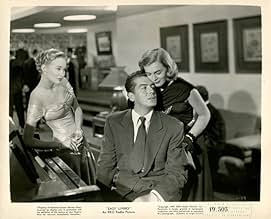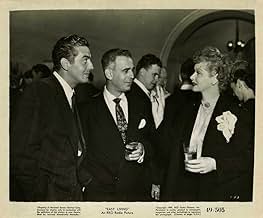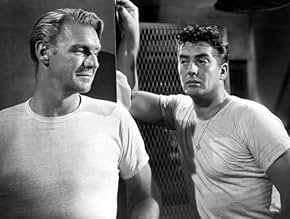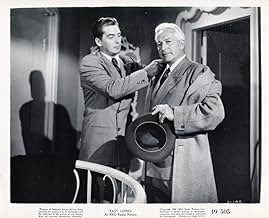There are two stories here. The stronger one deals with a quarterback for the New York Chiefs pushed toward retirement by a heart murmur. This story offers interesting glimpses at the state of professional football, circa 1949. The team takes the train to "away" games, for instance, and it seems to have only one black player. And get this --making the Championship Playoffs means at least an extra $1000 for every man on the team! (But this was in an era of nickel pay-phone calls, when college football coaches made $3200 a year.)
The other story centers on the quarterback's troubled relationship with his ambitious, social-climbing wife who's not above using her seductive charm to make a success of her interior decorating business. Here again there are intriguing insights into the world of 1949, where "uppity" women had to be taken down a notch or two lest they forget their proper roles as wives and mothers.
These two stories don't merge particularly well, resulting in an awkward blend of "locker room" and "Park Avenue," and the ending seems forced and unconvincing. (This may have been due to the Production Code's dim view of divorce.) However, the cast still makes the movie worth a look, with solid work from Lucille Ball, Lloyd Nolan, Jim Backus, Art Baker, Jack Paar, etc. Lizabeth Scott -- she of the spectacular eyebrows -- seems a tad "overheated" as the self-centered wife but the script probably forced this kind of performance. Victor Mature has the better part and he acquits himself in adequate fashion. In his locker room scene he gets to strip off his shirt and thus reveal one of the great torsos in the movies. (And how gloriously it was soon to be whipped and otherwise tortured in such films as "Samson and Delilah," "The Robe," "Zarak," and "Timbuktu.") Too bad the movie as a whole isn't equal to its star's chest measurement.





































